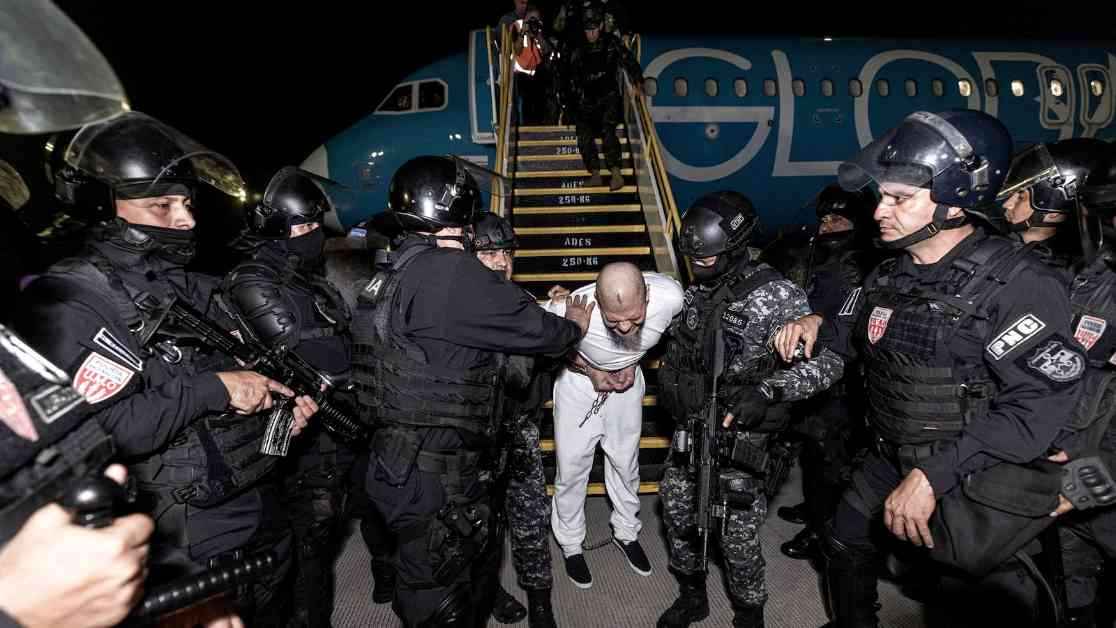President Trump’s administration has defied a judge’s order by proceeding with the deportation of alleged Venezuelan gang members on two flights, sources revealed to ABC News. The chief judge of the Washington, D.C., District Court, James Boasberg, issued a verbal directive during a hearing, demanding the government to turn around any aircraft in the air or on the verge of departing the country if it contained the specified individuals.
Boasberg’s ruling came as a response to a lawsuit aiming to prevent the deportation of non-citizens subject to an AEA proclamation for at least 14 days. The judge argued that proceeding with the deportations would cause irreparable harm, leading to a temporary restraining order. However, the administration decided to proceed with the flights, claiming that Boasberg’s order did not apply as the planes were already over international waters.
The decision to continue the deportation flights, despite the court directive, sparked controversy and legal disputes. Press Secretary Karoline Leavitt defended the administration’s actions, stating that the court order was issued after the alleged gang members had already left the U.S. territory, hence not conflicting with the administration’s actions.
The Trump administration further sought a stay of Boasberg’s ruling from the D.C. Circuit Court, arguing that the judge lacked jurisdiction to enter the temporary restraining order. The administration’s move was described as an unprecedented intrusion on the executive’s authority to remove individuals deemed as national security threats.
Legal and Ethical Implications of the Deportation Controversy
The legal and ethical implications of the deportation controversy raised concerns among legal experts and civil rights advocates. The administration’s decision to proceed with the deportations despite a court order highlighted the ongoing debate over executive powers and judicial oversight.
Legal scholars emphasized the importance of upholding the rule of law and respecting court rulings, even in cases involving national security concerns. The clash between the administration and the judiciary underscored the delicate balance between executive authority and constitutional checks and balances.
Critics of the administration’s actions argued that defying a court order set a dangerous precedent and undermined the fundamental principles of the U.S. legal system. The deportation controversy reignited discussions on the limits of executive power and the role of the judiciary in safeguarding individual rights.
Implications for National Security and Foreign Relations
The deportation controversy also had implications for national security and foreign relations, as the Trump administration’s actions sparked international attention and condemnation. The decision to deport alleged gang members under the Alien Enemies Act of 1798 raised concerns about due process and human rights violations.
Foreign governments expressed dismay over the administration’s disregard for legal norms and diplomatic protocols. The deportation of individuals accused of criminal activities without proper judicial review drew criticism from human rights organizations and foreign leaders.
The escalating tensions between the administration and the judiciary further strained relations with key allies and partners, as the deportation controversy highlighted the administration’s unilateral approach to foreign policy and national security. The fallout from the deportation flights underscored the complex interplay between domestic law, international obligations, and global security challenges.
As the legal battle over the deportation flights continues, the implications for national security, human rights, and the rule of law remain at the forefront of public debate. The clash between the Trump administration and the judiciary reflects broader concerns about executive accountability, constitutional safeguards, and the enduring values of justice and fairness in a democratic society.


